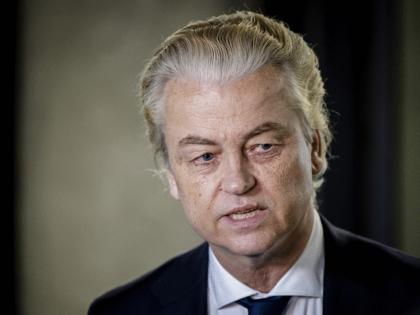Dutch prime minister to resign, continue in caretaker role
Published in News & Features
Dutch Prime Minister Dick Schoof said his government would offer to resign and continue on in a caretaker role, setting the stage for a likely snap election.
Far-right Geert Wilders pulled his Freedom Party out of the Dutch government earlier Tuesday over the refusal of his three coalition partners to agree to his plans to curb migration. His demands included closing the border to asylum seekers, temporarily halting family reunification and returning asylum seekers to Syria.
While a minority government is unlikely, the remaining coalition parties will first explore whether they can continue together in another form — for example, by bringing in new parties or continuing as a minority cabinet. If those talks fail, there will be a fresh ballot.
“In the past days I let all four caucus leaders know several times that the fall of the government would in my opinion be unnecessary and irresponsible,” Schoof told reporters in The Hague. “Nationally and internationally we are facing big challenges, and more than ever do we need reliability.”
Migration has become a leading issue for Dutch voters, fueled by one of Europe’s worst housing crises and rising costs of living. In the last election, the Netherlands turned its back on years of liberal immigration policies as Wilders vowed to implement the “strictest asylum policy ever.”
Dutch bonds remained higher along with their European peers. The spread between the Netherlands’ 10-year yield and the equivalent German rate traded at 21 basis points, little changed from Monday.
“We think a caretaker government will avoid controversial topics for up to one year, so the Netherlands will be stable with no impact on the funding need,” Jaap Teerhuis, senior rates strategist at ABN Amro Bank NV said. “There’s no panic whatsoever relating to the political situation in the Netherlands.”
Wilders’ party delivered a shock electoral victory in the 2023 parliamentary vote as far-right parties across Europe have risen in popularity, partly on promises to cut migration. The Dutch coalition parties, however, refused to name Wilders prime minister, instead tapping former spy chief Schoof, who didn’t hold a party affiliation.
The right-wing cabinet has been plagued by a number of controversies since it was installed in July, which began with Schoof’s appointment. He was the first non-partisan premier since 1918, breaking with a tradition of the leader of the largest party holding the post.
This isn’t the first time migration sunk a Dutch government: In 2023 the government of the previous prime minister, Mark Rutte, who had been the country’s longest-serving leader, collapsed over the same issue. In that instance, the caretaker government was installed for four months before a snap election.
Even though the Freedom Party’s support had been declining over the past few months, it regained its position as the strongest political force in a poll this week after Wilders announced his new migration plan. An Ipsos poll in early May translated to 29 seats for Wilders’ party, lower than the 37 he has in parliament today.
Wilders’ move was immediately criticized by his coalition partners, with Caroline van der Plas from the Farmers Party calling Wilders’ decision a “reckless kamikaze action” in a post on X.
“Geert Wilders does not put NL first, he puts himself first,” she said. Dilan Yesilgöz, another coalition party leader of the People’s Party for Freedom and Democracy, said Wilders was “not concerned about asylum, not about the interests of the Netherlands and not about his voters.”
The Confederation of Netherlands Industry and Employers — which represents companies such as ASML Holding NV and Heineken NV — said in a statement that the Netherlands urgently needed an “effective and stable cabinet” especially in these times of “great geopolitical tensions.”
Wilders, 61, has been a fixture in Dutch politics for decades. As the longest-serving lawmaker, he has been focused on immigration and Islam, as he has called for fewer Moroccans in the Netherlands and for banning Muslim immigration, mosques and the Koran.
Initially most mainstream parties — including Rutte’s People’s Party for Freedom and Democracy — ruled out working with him, until last year, after his surprising electoral victory made his party the biggest bloc in parliament.
The Freedom Party “has promised to the voters to enact the strictest asylum policy ever,” Wilders said in a television interview earlier Tuesday. “I had no other choice now than to say we’ll withdraw our support for this government — I let the prime minister know that we’ll pull our ministers from the cabinet and that we can’t bear any further responsibility for this.”
_____
(With assistance from James Hirai, Sarah Jacob and Charlotte Hughes-Morgan.)
©2025 Bloomberg L.P. Visit bloomberg.com. Distributed by Tribune Content Agency, LLC.







Comments